The 2019 meeting of the American Society of Criminology – the 75th meeting – took place in San Francisco between 13 and 16 November. For those who have not attended a meeting previously, this is a big event. Almost 5000 people attend, and the conference program is 472 pages long.
Rural criminology continues to grow. A search of the program using the keyword “rural” resulted in 81 entries: a clear demonstration of how much rural criminology has indeed grown.
Some selected conference highlights
A number of themed panels were arranged, providing an opportunity for rural criminologists to share their research with one another, but importantly, too, to share with other colleagues from across the broader criminology field.
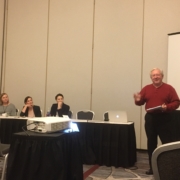
Joe Donnermeyer
A session on qualitative rural research, chaired by Rashi Shukla from the University of Central Oklahoma, contained presentations from Rash and her colleague Melissa Inglis from East Central University; Jessica Peterson from Indiana University; an Alison Cox from the University of Northern Iowa. Each presentation shed interesting light on the some of the challenges of rural field work research – filling the car with petrol, taking a cut lunch, being very organised and other practical considerations for example.
A roundtable on these challenges was also convened by our own ISSRC president Joe Donnermeyer with Rashi Shukla and another roundtable on the future of rural criminology led to an informal exchange of ideas which will no doubt lead to ongoing and productive collaborations.
Joe Donnermeyer also arranged a themed panel on farm crime victimisation, with presentations from Alistair Harkness (Federation University in Victoria, Australia), Vania Ceccato (Royal Institute of Technology, Sweden) and Matt Bowden and Artur Pytlarz (Dublin Institute of Technology, Ireland).
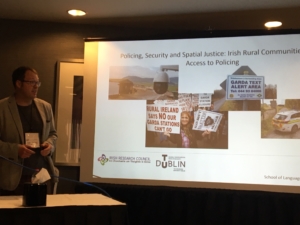
Artur Pytlarz
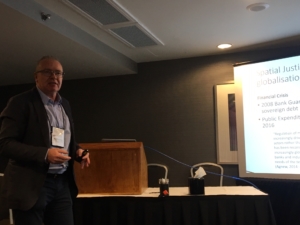
Matt Bowden

Vania Ceccato
Demonstrating the internationality of both the conference and contemporary research, a themed panel canvassed issue around rural crime in China and two sessions additional sessions addressed issues around rural access to justice.
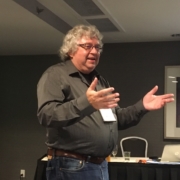
Ralph Weisheit
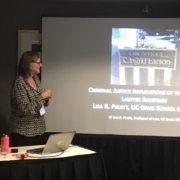
Lisa Pruitt
Two other roundtables – one on technology and rural criminology organised by ISSRC Treasurer Bridget Harris, Queensland University of Technology) and on rural crime prevention organised by ISSRC secretary Alistair Harkness) were other highlights and, again, led to scintillating discussions.
Of course, other rural related papers were dotted throughout the conference. To take but just one example, Tarah Hodgkinson (Griffith University), for instance, presented her research on perceptions of crime and safety in a small rural community in Saskatchewan in a panel with three other urban-focused papers centred on the theme of community perceptions of crime.
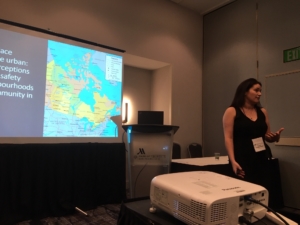
Tarah Hodgkinson
Of course, it is not just the formal aspects of as conference such as this which allow for sharing of research and perspective, but the “sidelines” discussions over coffee, drinks and meals also generate an enormous degree of good will and collaborative spirit which bodes extremely well for the months and years ahead.
The Division of Rural Criminology
The Division of Rural Criminology is now well established, and at its annual general meeting many of the Board members were introduced:
Chair: Joseph F. Donnermeyer
Vice-Chair: Walter DeKeseredy
Secretary-Treasurer: David May
Executive Counselors: Kyle Ward and Ralph Weisheit
Student Representative: Ashley Lockwood
A highlight, without doubt, was the awarding of the inaugural rural criminologist of the year plaque to Ralph Weisheit.
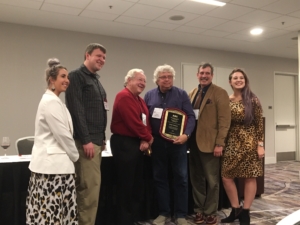
L-R: Danielle Stoneberg; Kyle Ward; Joe Donnermeyer; Ralph Weisheit; Walter DeKeseredy; Gabrielle Lory
More information on the Division, including its newsletters and membership details, can be found on the Division’s website.
ASC 2020
The 76th meeting of the ASC will be held in Washington DC between 18 and 21 November 2020. The theme is “Crime and justice theory and research: Thinking outside the box”. Much opportunity for rural criminologists to present their work and continue the expansion of rural crime scholarship into the future.
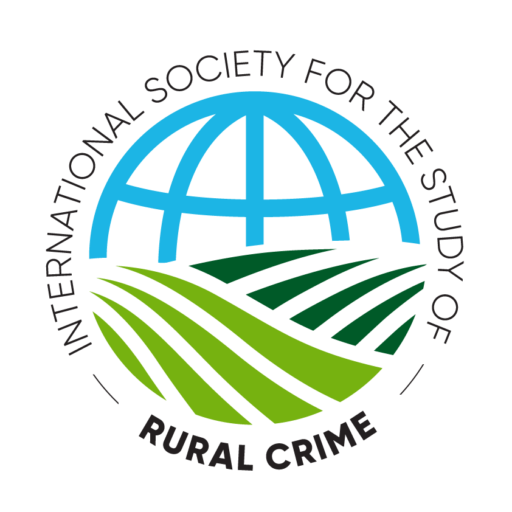
 Myths about peaceful, crime-free areas beyond the cityscape persist, but in fact rural crime is multi-faceted, raising new policy predicaments about policing and security governance. With approximately 46 percent of the global population living in rural areas, a focus on rural crime in these diverse communities is critical.
Myths about peaceful, crime-free areas beyond the cityscape persist, but in fact rural crime is multi-faceted, raising new policy predicaments about policing and security governance. With approximately 46 percent of the global population living in rural areas, a focus on rural crime in these diverse communities is critical.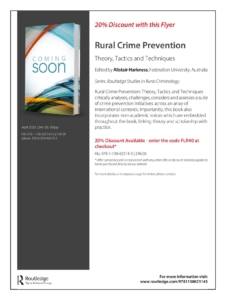








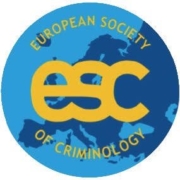 The forthcoming
The forthcoming